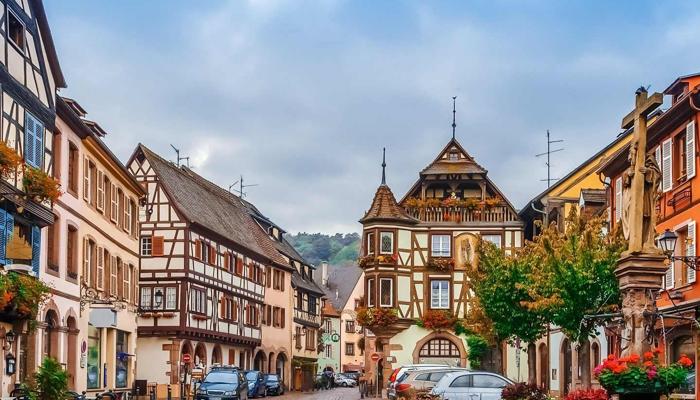Embark on a Budget-Friendly European Getaway! Tips on saving big while exploring the beauty of Europe. Read on for expert advice
Europe, with its rich history, stunning landscapes, and vibrant cultures,
tops the travel bucket list for many Indians. However, the perception that a European vacation is solely for the rich can be a major deterrent. Fear not, fellow travelers!
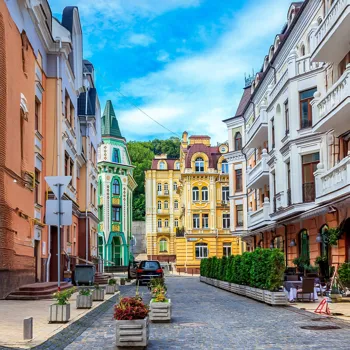
With careful planning and smart choices, exploring the beauty of Europe on a budget is absolutely achievable. This guide is your compass, leading you through the maze of options and helping you craft an unforgettable, yet affordable, European adventure.
Timing is Everything: When to Travel for Maximum Savings
The first and perhaps most crucial step toward a budget-friendly European escapade is choosing the right time to travel. Avoid peak season (June to August) like the plague! During these months, flights and accommodation prices skyrocket, and popular tourist destinations become overcrowded.
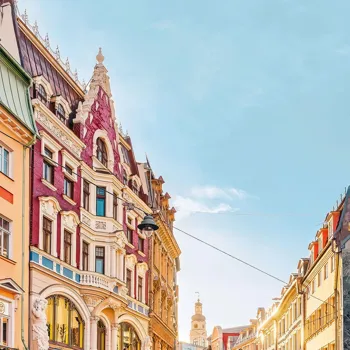
Instead, consider traveling during the shoulder seasons (April-May or September-October). The weather is still pleasant, the crowds are thinner, and most importantly, prices are significantly lower. For example, flying to Paris in October can save you almost 30% compared to flying in July.
Also, keep an eye out for off-season deals and promotions offered by airlines and hotels during the winter months (November to March). While some attractions might have reduced hours during this time, you'll be rewarded with incredible bargains and a unique winter wonderland experience.
Remember to pack accordingly, as the weather can be unpredictable. Booking flights and accommodations well in advance, especially during shoulder seasons, is always a wise move to secure the best possible deals.
Utilize websites like Skyscanner or Google Flights to compare flight prices across different airlines and dates.
The time of year greatly affects the expenses you will incur on accommodation and transportation. For lodging, budget-friendly options include staying in hostels and guesthouses.
For transportation, consider slower travel options like railways for getting from one town to another. Always pack light because airlines charge extra for luggage weight.
Choosing a good time to travel to Europe enables you to cut costs as you can book flight tickets at discounted prices.
Avoid holidays and peak travel seasons. When you land in Europe, avoid lavish restaurants and accommodation and choose budget friendly alternatives like local cafe or hostels.
Destination Decisions: Choosing Affordable Countries and Cities
Not all European countries are created equal when it comes to affordability. Western European countries like Switzerland, Norway, and the United Kingdom tend to be more expensive than their Eastern and Southern European counterparts.
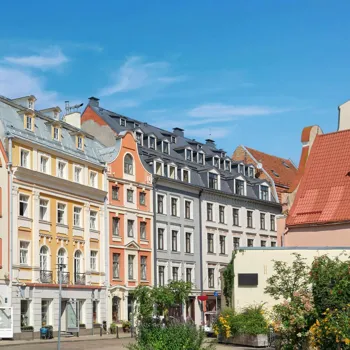
Consider focusing your itinerary on countries like Portugal, Spain, Greece, Hungary, Poland, and the Czech Republic. These destinations offer a fantastic blend of culture, history, and natural beauty at a fraction of the cost.
Within these countries, explore smaller towns and cities rather than sticking solely to the capital cities. Smaller locales often offer a more authentic experience and are significantly cheaper in terms of accommodation, food, and activities.
For example, instead of staying in Barcelona, consider exploring Valencia or Seville. Likewise, in Italy, opt for a charming Tuscan town instead of Rome. Don't underestimate the charm and affordability of the Balkans, which includes countries like Croatia, Serbia, and Bulgaria.
These nations offer stunning coastlines, fascinating history, and a vibrant culture, all while being incredibly budget-friendly. Researching the cost of living in various cities and countries before finalizing your itinerary is essential.
The best way to plan a memorable European vacation on budget is to decide the countries and cities you want to travel to. Instead of Western countries, opt for Eastern Europe countries, as they are slightly cheaper and more affordable. Pick one country and make a thorough itinerary.
For accommodation during travel, instead of booking individual hotel rooms, one can also opt for a stay in hostels. They come cheap. If you are travelling with a group of friends, you can rent service apartments, as renting is more economical as opposed to staying in hotels.
Accommodation on a Shoestring: Hostels, Guesthouses, and Alternative Stays
Accommodation often constitutes a significant portion of your travel budget. Thankfully, Europe offers a wide range of budget-friendly alternatives to traditional hotels. Hostels are a fantastic option for solo travelers or those looking to socialize and meet fellow adventurers.
They offer dormitory-style rooms at incredibly affordable prices. Private rooms are also available in many hostels for a slightly higher cost. Guesthouses and budget hotels are another great choice, offering comfortable and clean rooms at reasonable rates.
Look for accommodations located slightly outside the city center, as they tend to be cheaper. Consider alternative accommodation options like Airbnb, where you can rent apartments or rooms from local residents.
This provides a more unique and authentic experience while often being more affordable than hotels. Couchsurfing is an even more budget-conscious option, allowing you to stay with locals for free. However, it's crucial to thoroughly vet your hosts and prioritize safety.
Camping is also a viable option, especially if you're traveling during the warmer months. Many European countries have well-equipped campsites offering a budget-friendly and nature-immersed experience.
Opt for hostel and guesthouses instead of hotels to save costs.
Staying in hostels enables you to meet other travelers and make friends from across the globe. Many websites that offer hotel bookings, also show hostels in the area.
The other cheaper alternatives include Airbnb and couchsurfing.
These options make you live with locals and enjoy the authenticity of the culture. Also, you can take tips from locals on the local food joints, tourist attractions and other useful details
Transportation Tactics: Getting Around Europe Without Breaking the Bank
Navigating Europe can be expensive if you rely solely on taxis and private transfers. Public transportation is your best friend when it comes to budget travel. Utilize Europe's extensive and efficient train network to travel between cities and countries.
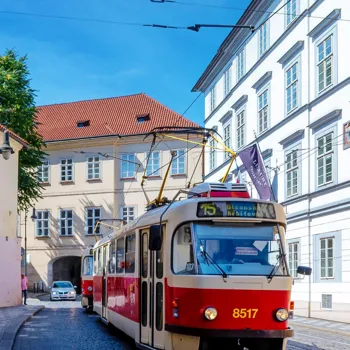
Eurail passes can be a great option if you plan on doing a lot of long-distance train travel. However, compare the cost of a Eurail pass to individual train tickets to determine which is more economical for your specific itinerary.
Budget airlines like Ryanair and EasyJet offer incredibly cheap flights within Europe. However, be mindful of baggage restrictions and extra fees. Consider flying into secondary airports, which are often located further from the city center but offer lower fares.
Within cities, utilize public transportation like buses, trams, and metros. These are usually significantly cheaper than taxis. Walking is also a great way to explore cities, especially if you're staying in a central location. Consider renting a bicycle for a fun and eco-friendly way to get around.
Look into city passes that offer unlimited access to public transportation and discounts on attractions.
Public transportation is the most cost-effective option to travel between cities and countries. Budget airlines and trains are two options to choose from.
In many European countries getting a City pass is worth the value, as it enables you to save costs on many travel destinations.
In cities like Paris and London, metros are the most economical option to travel within the city. Also, walking or renting a bicycle are viable options as well.
Walking helps you see the city closely and also do some exercise at the same point.
Food on a Budget: Eating Well Without Emptying Your Wallet
Eating out at restaurants every day can quickly drain your travel budget. Embrace the local culture and explore alternative ways to enjoy delicious food without breaking the bank.
Visit local markets and supermarkets to purchase fresh produce, cheese, bread, and other ingredients to prepare your own meals. This is a great way to save money and experience local flavors. Pack your own lunch and snacks for day trips and excursions.
Look for "menu del dia" or "prato do dia" (daily menu) offerings at local restaurants. These are usually set-price lunches that offer a good value for money. Avoid tourist traps and restaurants located in popular tourist areas, as they tend to be more expensive.
Explore smaller, family-run restaurants tucked away on side streets. Street food is a fantastic and affordable way to sample local cuisine. Look for food trucks and stalls offering delicious and authentic dishes at budget-friendly prices.
Many cities offer free walking tours that often include food tastings. Take advantage of these opportunities to sample local specialties without spending a fortune.
Instead of eating out at posh restaurants, plan a light snack or breakfast at shops that are nearby.
Exploring local cafes is a win-win situation. Look for daily menu offers at restaurants because this is one of the most economical option to dine outside with family.
Opt for street food while exploring different cities in Europe, as many local food stalls offer pocket friendly food that you can savour while you explore the town. Many cities also organize food tasting activities, and these can be great learning oppourtunities
Free or Low-Cost Activities: Experiencing Europe Without Spending a Fortune
Europe is brimming with free and low-cost activities that allow you to experience its culture and history without emptying your wallet. Many museums offer free admission on certain days of the week or month. Take advantage of these opportunities to explore world-class art and historical artifacts.
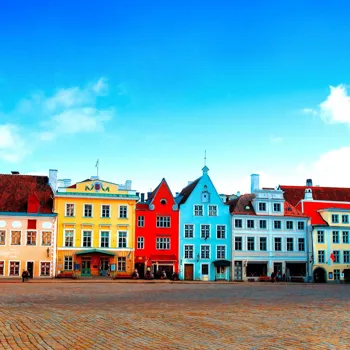
Walking tours are a fantastic way to discover a city's hidden gems and learn about its history and culture. Many cities offer free walking tours that operate on a tip-based system. Explore parks and gardens, which are often free to enter and offer a tranquil escape from the city bustle.
Visit churches and cathedrals, many of which are free to enter and offer stunning architecture and artwork. Attend free concerts and festivals, which are common throughout Europe, especially during the summer months. Hike or bike in the countryside, enjoying the stunning natural landscapes.
Pack a picnic and enjoy a relaxing day outdoors. Take advantage of free events and activities offered by local tourism boards. Research free Wi-Fi hotspots and download offline maps to avoid data roaming charges.
Many historical places offer free entries or free walking tour, so make sure you do your research before finalising a travel destination, so that you can explore a city for free. Take prior appointments to avoid waiting.
If you are travelling solo, museums and religious places are a great way to stay economical.
Pack light clothing that is easy to iron and carry. Use the hotel room facilities to iron them or handwash them. This will save you from the additional costs of laundary. Also, do not buy unnecessary gifts.
